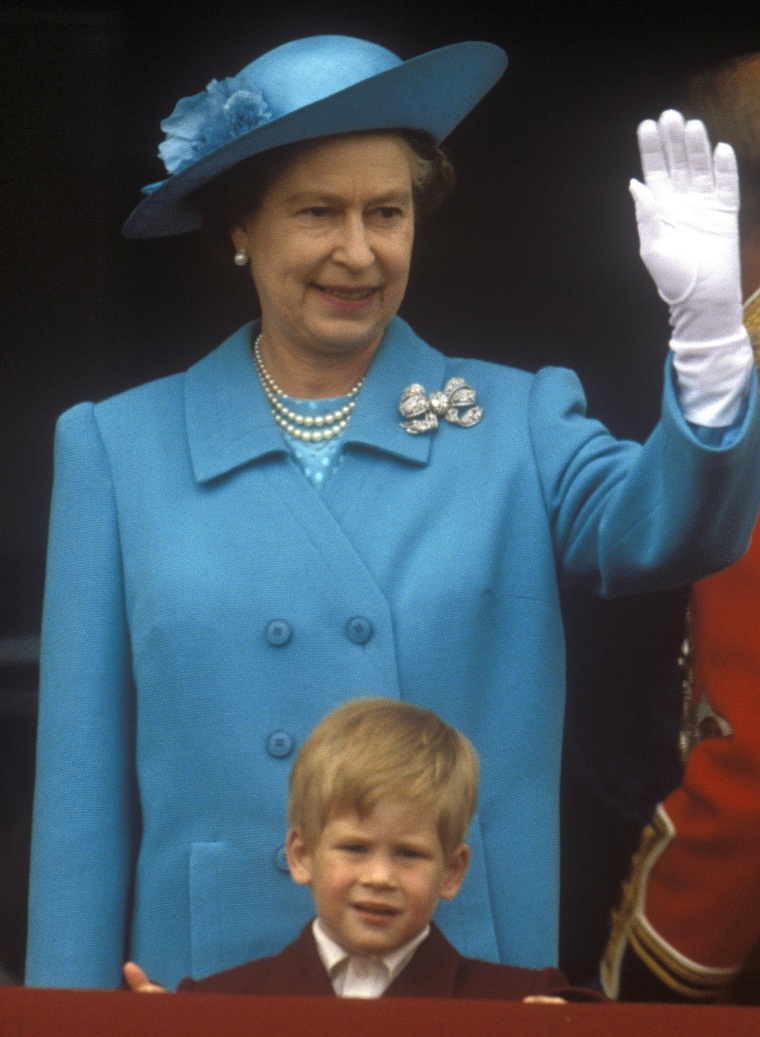Abrahamsons aren’t quick to die. That’s what my dad always told me. He chalked it up to longevity genes. So, I thought we had time. I thought one day I’d get a call that he was sick and I’d rush to his bedside and say all the things I needed to say. Except when the phone rang, it was his sister and she had terrible news. My father, whom I hadn't seen in more than two years, was dead.
Ever since my father took his life in 2018, I’ve been living with paralyzing guilt and all the woulda-coulda-shouldas. I'm mourning his death, but also the fact that we never made amends. If only I hadn’t been so stubborn. If only I'd responded to his Thanksgiving text message. If only I’d accepted his final hug instead of pulling away like a sullen teenager. It’s a lot to carry. I feel the weight every day.
When I learned that Queen Elizabeth II had passed away, I immediately thought of Prince Harry. The queen and Harry adored each other — who else could have gotten the longest-serving British monarch to appear in a silly video challenge? But when Harry left the monarchy, their relationship became more complex.
In 2020, Harry and his wife, Meghan Markle, announced they were stepping back from their royal duties — the duties that defined his grandmother’s life. We’ll never know exactly what their relationship was. Even in such public lives, that’s private.
But for Harry’s sake, I hope they found peace together. I hope he took his granny’s hand — even though that likely would have made her uncomfortable — and got everything off his chest. I hope she did the same. I hope they cried.
“Unfinished business generates a lot of guilt,” Dr. Kenneth J. Doka, senior vice president of grief programs at Hospice Foundation of America, told TODAY Parents. “But not everyone gets the chance to make amends.”
I know that all too well.
If you’re also grappling with complicated grief, Doka and Dr. Joanne Cacciatore, a grief counselor in Arizona, shared six ways to cope.

Put your feelings on paper
“Write a letter expressing to them what you wish would have been different,” Cacciatore told TODAY. “Then write a letter from them to you. Imagine what they would say to you, but have it come from a place of forgiveness. It’s very powerful.”
Confront your feelings
The heart of working with grief is to work through all your feelings about the deceased.
“In our society, we feel like we can only talk about the good things, but it’s OK to address what you didn’t like,” Doka said. “If we do not encounter the negative, we may idealize the person.”
Try the ‘empty chair technique’
The empty chair technique is a talk therapy exercise in which you express your feelings to a person, even though they’re not present.
“You might apologize profusely or open up about all the things that have been bothering you. Let it all out," Doka said. “Then go sit in the other chair and respond as the other person."
When I tried this method, I placed pictures of my dad on the empty chair and said goodbye. I released feelings I didn’t even know I had, like my sadness over the fact that my daughters will never watch him proudly fold a cloth napkin into a swan. He really loved doing that.
I apologized for being so hard on him. Parenting isn't easy. I make mistakes all the time. I am far from a perfect mom. I apologized for hurting him, for cutting him out of my life like a rotting branch.
Full disclosure: I was crying so hard after chatting with my late father that I wasn't able to complete the part of the exercise responding from his perspective.
Honor the dead
Doka has developed a technique that he calls the ritual of reconciliation.
"This is when you do something physical to process the pain of loss," he explained. "For instance, I worked with a boy who never told his uncle that he loved him. The uncle was a very important figure in his life, very paternal. After he died, the boy donated flowers to his uncle's church and then went to his uncle's grave with flowers and said, 'Uncle Walter, I love you.'"
Build a new relationship
Cacciatore noted that our relationships with our loved ones don't die when they do.
"We might not have the capacity to have a material relationship with that person anymore, but we can have a different relationship with that person — one that we can build and control," Cacciatore said. "It's not the same — it might not be as satisfying. But the idea is that (we) can reignite a connection with that person and it can be more on our terms."
Find a therapist who specializes in grief
This is a big one. I've had therapists squirm in their seats when I told them that my father, whom I was estranged from, took his life.
"One of my number one tips is to find a therapist who is trained in grief," Cacciatore said.
Doka agreed.
"Grief is considered by the American Counseling Association to be a generic skill. But I don't think it is," he said. " Not every counselor has taken significant work on grief and loss."
Related: